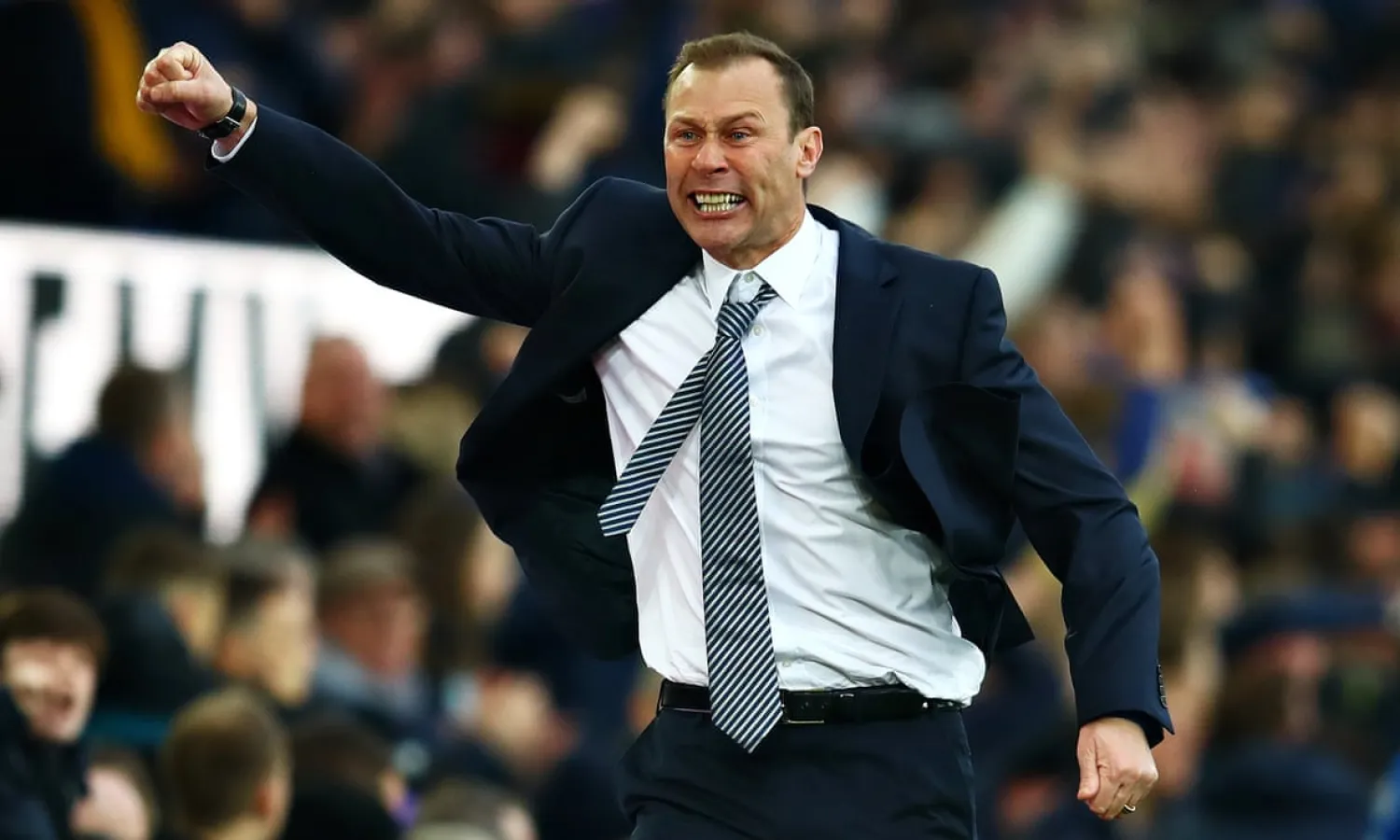What a week old-fashioned center-forwards have just had. First we saw Duncan Ferguson revive Everton’s fortunes from the touchline just by breathing on players who were struggling to make any impact under Marco Silva, then Andy Carroll came on at Newcastle and helped engineer a remarkable comeback against Southampton.
Carroll is a particularly interesting case because when occasionally deployed as an impact sub at West Ham it was usually a signal for spectators to express further dissatisfaction with the manager for not having any better ideas. Carroll as Plan B was, essentially, a sign of desperation, a last clutch at a straw. Yet Steve Bruce was rightly full of praise after the forward came on against Southampton and made an impact. “Big Andy coming on was a huge help,” the Newcastle manager said. “He showed glimpses of what he had 10 years ago.”
If those were just glimpses, if is probably safe to say Ralph Hasenhüttl will not be looking forward to catching Carroll in full flow any time soon. “To be honest I could only see my team winning,” the Southampton manager said, clearly still in some sort of shock about what he had just witnessed. “Then Andy Carroll came on and he’s not easy to defend against. He’s about 10ft tall.”
By an odd coincidence, about 10ft tall was the height Ferguson appeared to grow to at Goodison as he watched the players in his temporary charge tear into Chelsea and show what it meant to be passionate in the Everton cause. If Ferguson can repeat that on a regular basis there will be no need for Everton to cast their net around Europe for a manager, they can just carry on with the Bluenose under their noses, though the whole trouble with the up-and-at-em approach is that it tends not to be reproducible, at least not every week.
The great motivational managers, whether fist-pumpers such as Ferguson or misty-eyed romantics in the Kevin Keegan mold, usually get found out before long. Their methods work only up to a point, and it is quite often the point when a rival manager turns up with a shrewder knowledge of tactics and a slightly more subtle gameplan. When Keegan stepped down as England manager he famously admitted he had fallen short, that he could improve teams to a certain extent but not take them to the necessary next level. It was a typically honest admission, and one that broadly fitted in with his experiences at club level.
One imagines Ferguson will notice a similar tailing off the longer he stays in the Everton job. Bringing a disparate squad of players to a collective fever pitch is a skill in itself, and one greatly appreciated by Everton supporters in the middle of another uninspiring season, though inevitably it is subject to the law of diminishing returns. Everton cannot play out of their skins every week; no one can. There have to be more scientific ways of winning football matches, and coaches such as Pep Guardiola and Jürgen Klopp are deservedly venerated because their methods produce consistent results without sacrificing the element of excitement.
Perhaps there is more to Ferguson than a preference for 4-4-2 and the passion that swept up the Goodison ball-boys as well as the crowd against Chelsea. Perhaps his next trick will be to unveil a more cerebral approach at Old Trafford on Sunday, where Ole Gunnar Solskjær’s in-form Manchester United are going to take some stopping.
Solskjær himself has had his managerial credentials rubbished many times this season, often by Manchester United supporters, yet after besting José Mourinho and Guardiola in the space of a week even his fiercest critics must concede he might know what he is doing.
It is possibly significant that United’s best performances this season have come against leading opponents. Where they have slipped up is against lower- or mid-ranking sides such as Bournemouth, Newcastle and Sheffield United. That suggests self-belief is not a problem, just consistency, and Ferguson will be hoping to tap into something similar for his next match in charge. It probably worked in his favor that his first opponents were a top-four team in Chelsea, because Everton will have known they had to be at it from the start. The same thing might be true on Sunday. It has been described as a free hit for Ferguson because Everton would not be expected to win in any case, but the manager will know that sort of talk is dangerous.
Ferguson may not be in charge for much longer but he will want as many wins to his name as possible, and on a short-term basis he will be confident about how to go about it. After his first result he is entitled to feel confident about everything, just as Carroll at Newcastle will be appreciating a bit of praise as a welcome change from constant questions about why the club brought him back.
Although Ferguson and Carroll strike many as dinosaurs, pleasingly they are not extinct just yet. Everton in particular are unlikely to mind staying in Jurassic Park a while longer. Ideally they would like a permanent manager to have been appointed by the turn of the year, but one of the first things a new Everton appointment will have to do is negotiate another trip to Anfield in the FA Cup third round. The last Merseyside derby was cruel on the last Everton manager and could be just as testing for the next one, especially if he is new to the club and the area and still finding his feet. Ferguson, one feels, would have his tin hat at the ready.
(The Guardian)









